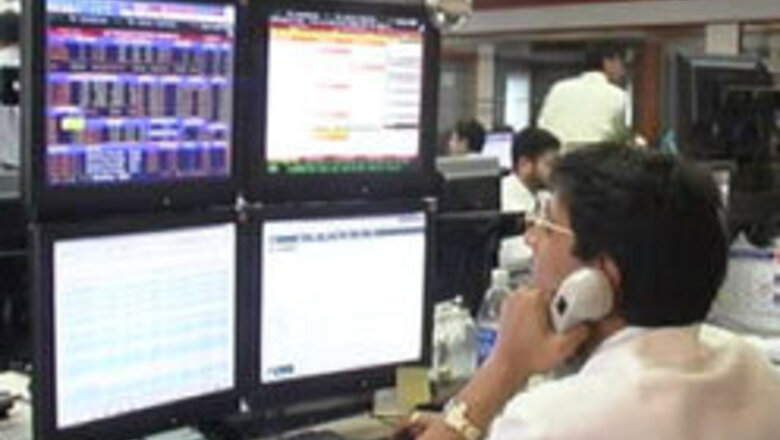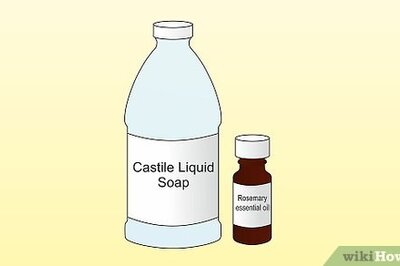
views
Mumbai: Wanna invest in an IPO? Here is what you need to do. The first step will be to open a D-mat account. Find out the whats and hows of a D-mat account.
What is a Demat A/c?
Investors who wish to trade in the market need to have a dematerialized, or demat, account. In India, the government has mandated two entities – National Securities Depository, or NSDL, and Central Depository Services (India), or CDSL – to be the custodian of dematerialized securities.
What do you mean by dematerialization?
Dematerialization is the process by which physical certificates of an investor are converted to an equivalent number of securities in electronic form and credited in the investor's account with its DP.
Can I dematerialize any share certificate?
You can dematerialize only those certificates that are already registered in your name and are in the list of securities admitted for dematerialization.
What is a depository?
A depository can be compared to a bank. A depository holds securities like shares, debentures, bonds, government securities, and units, among others of investors in electronic form. A depository also provides services related to transactions in securities.
How can I avail the services of a depository?
A depository interfaces with the investors through its agents called depository participants, or DPs. If an investor wants to avail of services offered by the depository, the investor has to open an account with a DP. This is similar to opening an account with any branch of a bank in order to utilize the bank's services.
Next: How do I select a DP?
PAGE_BREAK
What are the benefits of opening a demat account?
The benefits of opening a demat account are:
> Immediate transfer of securities;
> No stamp duty on transfer of securities;
> Elimination of risks associated with physical certificates such as bad delivery, fake securities, etc.;
> Reduction in paperwork involved in transfer of securities;
> Reduction in transaction cost;
> Nomination facility;
> Change in address recorded with DP gets registered electronically with all companies in which investor holds securities eliminating the need to correspond with each of them separately;
> Transmission of securities is done by DP eliminating correspondence with companies;
> Convenient method of consolidation of folios/accounts;
> Holding investments in equity, debt instruments and government securities in a single account;
> Automatic credit of shares into demat account, arising out of split/consolidation/merger etc.
How do I select a DP?
You can select your DP to open a demat account just like you select a bank for opening a savings account. Some of the important factors for selection of a DP can be:
> Convenience - Proximity to the office/residence, business hours.
> Comfort - Reputation of the DP, past association with the organization, whether the DP is in a position to give the specific service you may need?
> Cost - The service charges levied by DP and the service standards.
What are the documents that I will require?
Proof of identity (copy of any one proof):
> Passport /Voter ID Card / Driving license / PAN card with photograph / Identity card/document with applicant's photo, issued by
Central or State government and its departments or Statutory or Regulatory Authorities or Public sector undertakings/ Scheduled commercial banks/ Public financial institutions/ Colleges affiliated to universities (this is valid only till the time the applicant is a student) /Professional bodies such as ICAI, ICWAI, ICSI, Bar Council etc, to their members; and Credit cards/debit cards issued by banks.
Next: What Else?
PAGE_BREAK
Proof of address (copy of any one proof):
> Ration card / Passport / Voter ID card / Driving license / Bank passbook / Verified copies of electricity bills/ residence telephone bills (not more than two months old) or Leave and license agreement or agreement for sale/ Self-declaration by High Court and Supreme Court judges, or Giving the new address in respect of their own accounts / Identity card/document with address, issued by Central or State government and its departments or Statutory and Regulatory Authorities or Public sector undertakings or Scheduled commercial banks or Public financial institutions or Colleges affiliated to universities (this is valid only till the time the applicant is a student) or Professional bodies such as ICAI, ICWAI, ICSI, Bar Council etc, to their members; and
> Passport-size photograph
> Copy of PAN card
> One must remember to take original documents to the DP for verification. Your DP will carry-out "in-person verification" of account holder(s) at the time of opening your account.
Other Information
> How long does the dematerialization process take?
Dematerialization will normally take about 30 days.
> Can I dematerialize my debt instruments, mutual fund units, and government securities also in my demat account?
You can dematerialize and hold all such investments in a single demat account.
> Can my electronic holdings be converted back into certificates?
If you wish to get back your securities in physical form, all you have to do is to request your DP for rematerialisation of the same. 'Rematerialization' is the term used for converting electronic holdings back into certificates. Your DP will forward your request to the depository. After verifying whether you have the necessary balance, the depository will intimate the registrar, who will print the certificates and dispatch the same to you.




















Comments
0 comment